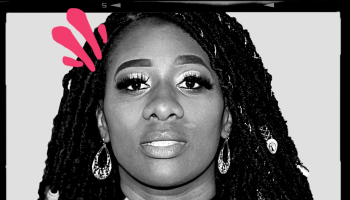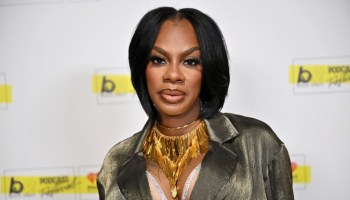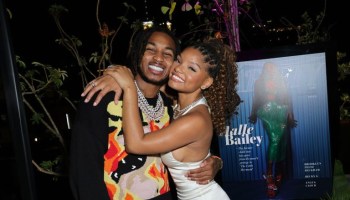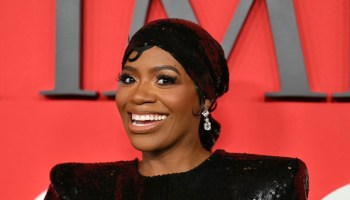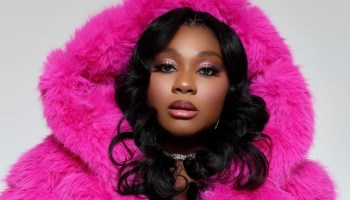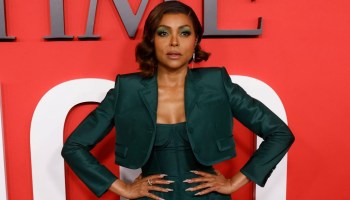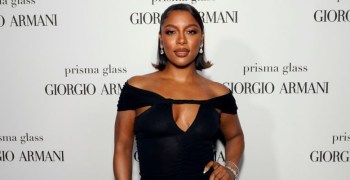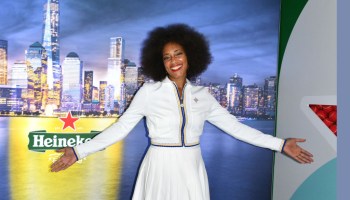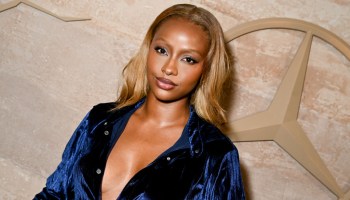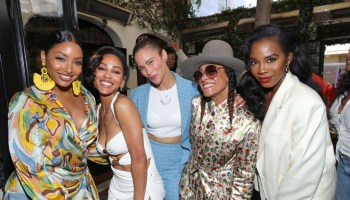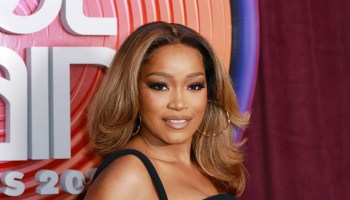If you’ve seen last year’s critically acclaimed film Selma, you probably recall Diane Nash’s character (played by Tessa Thompson) marching alongside activists like Dr. Martin Luther King, Jr., James Bevel and (now congressman) John Lewis. Even though it was a small part, don’t let Nash’s small role in the film fool you. She was a crucial figure in the Freedom Rides, the lunch counter sit-ins, protests for Blacks’ voting rights and the passage of the Civil Rights Act of 1965.
Nash was born in 1938 and raised in Chicago by her grandmother until the age of seven. Her grandmother was a source of strength and encouragement for Nash, but Nash notes that race was rarely spoken about in her middle-class home and she was confused by it in her youth. After being turned away from a modeling school for being Black at the age of 15, Nash became more aware of racial issues—setting the stage for her life as a student activist at Fisk University in 1959.
MUST READ:#SayHerName: Lawana Lamone, 19, Missing, Believed To Be In Danger
Going to school in Nashville, TN was quite the culture shock after Nash’s years growing up in Chicago and briefly studying at Howard University. She was infuriated by the racial segregation she saw in Nashville and aligned with James Lawson’s nonviolence movement, taking his workshops and learning Mohandas Gandhi’s nonviolence methods. Nash became so passionate about the work that she ended up dropping out of college and becoming the founding member of the Student Nonviolent Coordinating Committee (SNCC) in April 1960.
“I did not want to be chairperson. I was afraid to be chairperson,” Diane Nash said in a MAKERS interview. “And I remember thinking, ‘We’re facing white racists businessmen and politicians and who are we? A group of students, 18, 19, 20 years old.'”
Though a reluctant leader, Nash put her fears aside to become a more confident and effective organizer. A turning point for her came on April 19, 1960 when Z. Alexander Looby’s home was bombed; Looby served as the students’ attorney. In response, Nash led thousands of students in a march to the Nashville courthouse. Nash became even more famous for her power to influence other students and affect change after leading Nashville lunch counter sit-ins. At the height of the protests, Nash confronted the Mayor Ben West about the racist attacks students were receiving during the sit-ins. After being confronted, West publicly stated that the attacks were wrong and within six weeks, Nashville became the first city to integrate its lunch counters.
“We presented Southern white racists with a new set of options,” Nash once said in an interview with USA Today. “Kill us or desegregate.”
Nash grew so fearless that she spent 30 days in jail in solidarity with the “Rock Hill Nine,” another group of students sent to prison for their lunch counter protests. She then went on to lead the freedom rides from Birmingham, AL to Jackson, MS even after the Ku Klux Klan had burned a bus along the route as a scare tactic. Nash worked alongside Bernard Lafayette and now congressman John Lewis to recruit volunteers for the rides—defying the Kennedy administration’s efforts to push her into another, less-incendiary platform of voting rights.
“It was clear to me that if we allowed the Freedom Ride to stop at that point, just after so much violence had been inflicted, the message would have been sent that all you have to do to stop a nonviolent campaign is inflict massive violence,” Nash said in Freedom Riders.
That is not to say that Nash didn’t leave room for voting rights in her efforts as an activist. In fact, Nash was key to getting Martin Luther King, Jr. to Montgomery, AL—as she was the one who negotiated a relationship between SNCC and the Southern Christian Leadership Conference. The goal of the partnership was to drive Black voters to the polls and in turn create a strong front that could combat future attacks like the one on the Sixteenth Street Baptist Church that killed four young girls. Looking back on her time as an office administrator and as an organizer for the protests, Nash asserts that men in the Civil Rights Movement were her contemporaries, not her shepherds.
“People felt that men should be leaders and I never felt that way,” Nash said. “I never felt that way even in working with Martin Luther King. I never saw him as my leader. I saw myself as being at his side, I saw him as being at my side.”
Nash married fellow activist and Freedom Rider James Bevel in 1961. The following year, Nash was found guilty of contributing to the delinquency of minors for teaching youths nonviolent protest tactics. It left her with a two year prison sentence and she was four months pregnant at the time.
“The movement had a way of reaching inside me and bringing out things that I never knew were there—courage and love,” Nash said in a PBS interview.
“It was a real experience to be there among a group of people who would put their bodies between you and danger and to love people that you worked with enough that you would put yours between them and danger.”
Once the court realized Nash was pregnant after her phone calls, they released her, letting her serve only 10 days and throwing out the other, longer sentence.
MUST READ: ‘The New York Times’ Creates ‘The DuVernay Test’ in Honor of Ava DuVernay
Nash’s never-ending courage clearly impressed her contemporaries and the politicians surrounding the movement. She was appointed by John F. Kennedy to a national committee that helped pass the Civil Rights Act of 1964. Nash continued to work for the SCLC from 1961 to 1965 until she became frustrated with the organization’s gender gap. Men were frequently being given more powerful positions even when they weren’t qualified for their appointments. Nash parted ways with the organization in 1965 when Stokely Carmichael took over leadership and abandoned its original nonviolent practices.
“Charismatic leadership as we’ve known it will not free Black people because instead of being a vehicle to liberation, it really is a symptom of social illness. For an adult to think that he or she needs is a leader to tell them what to do and all they have to do is do it is a serious problem…leadership that has to do with the ego and being ordained the leader and staying a leader for years and years is deficient. I think movements should be issue led, not personality led,” Nash said.
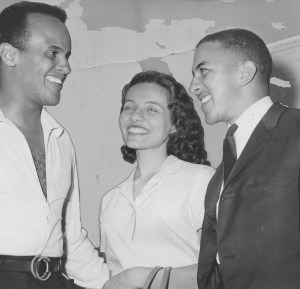
Source: Afro Newspaper/Gado / Getty
Around that time, Nash continued working on the Birmingham de-segregation campaign of 1963 and the Selma Voting Rights Campaign of 1965. She later returned to her native Chicago to work in education, real estate, fair housing advocacy and the Vietnam War.
Nash has received several awards for her achievements including: the Rosa Parks Award in 1965, the Distinguished American Award in 2003, the LBJ Award for Leadership in Civil Rights in 2004 and an honorary degree from Fisk University in 2009. The accolades she has received in her later years have not made her lose sight of the fiery, defiant will for justice she had possessed at the chipper age of 23. Nash urges young people today to do more than vote, and to not wait for change at the hands of our legislators. In a 2013 interview with Melissa Harris-Perry at Tulane University, Nash said:
“When we were taught history in school, we were taught about generals and presidents and battles and dates. We were taught very little about the movements that American citizens did that made history…That tends to make people think that they as ‘ordinary citizens’ cannot do very much. I think that’s very unfortunate. I think that’s also very deliberate. I think that if we’re going to have a country where citizens have a reasonable amount of rights, then American citizens are going to have to take the future of this country into our own hands.”
Happy Black History Month! Who’s one of your unsung heroes? We will be sharing ours with you all this month.
RELATED STORIES:
Rest In Power: Civil Rights Leader And Politician Georgia Davis Powers Dies
Nate Parker Talks Candidly About Nat Turner, White Supremacy And Real, American Heroes
Justice Served: D.C. Bartender Wins $687,000 In Racial Discrimination Case
